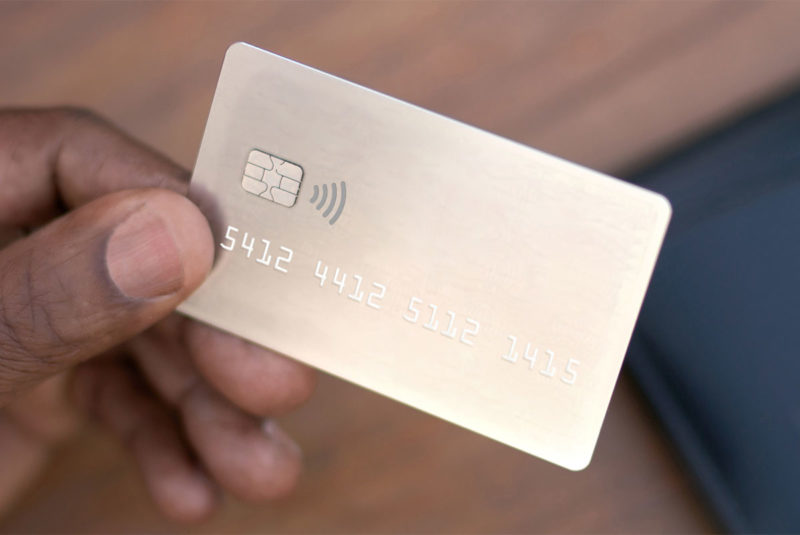A credit builder loan is a type of loan created specifically to help people build credit. It’s actually a bit like a reverse loan.
With most installment loans, like personal loans, you get the money up front to make a big purchase. Then, you start paying the same amount (an installment) each month until you’ve paid off the debt.
Credit builder loans are different: You start making monthly payments, and do so for several months or years. Then, you receive the money at the end of the loan term.
At the end of the process you have a perfectly paid off loan under your belt, giving your credit scores a potential boost (assuming you made all your payments on time). In turn, this could increase your odds of approval for credit cards and unsecured personal loans, and increase the odds of securing auto loans and mortgages with better terms.
According to the Consumer Financial Protection Bureau, 45 million Americans may be denied credit because they don’t have enough credit history or don’t have credit scores.
Credit builder loans can be an option to help many people better their financial and credit situations.
How Do Credit Building Loans Work?
A credit builder loan is a type of installment loan, which means you pay the same amount of money each month. However, it’s unique and is really just used to build credit.
This is because you don’t actually get the money you’re being loaned until you pay the full amount of the debt into an account with a lender, financial institution, or credit union.
Your loan is held in an interest-bearing bank account, which is why it may also be called a credit builder account. Your payments act as a security deposit to fund the loan.
Rather than giving you some quick funds like a regular loan, credit builder loans simply give you an opportunity to establish a positive payment history on your credit reports. Making every payment on time shows that you can handle a credit account responsibly. This will likely have a positive effect on your credit (all other things being equal), making it easier to qualify for better credit cards and loan terms in the future.
How Do You Get a Credit Builder Loan?
Here are the steps to get and manage a credit builder loan:
1. Research where to get one and what terms are offered
As you consider the options discussed above and other lenders, confirm information such as:
- The interest rate range
- The loan amounts offered
- The loan term or how long you’ll be making payments
- The amount of your monthly payment
- Any fees associated with the application, joining a credit union, opening an account, and opening the loan
- Whether or not the company reports to the three major credit bureaus (Equifax®, Experian™, and TransUnion®). If it doesn’t report payments to any credit bureau, which would be unlikely for a product designed to build credit, then you’re not getting any benefit to your credit scores because the loan won’t appear on your credit reports.
2. Join the credit union (if necessary)
If you’ve chosen a credit union rather than an online provider for your credit builder loan, it’s time to become a member. Each credit union has unique membership requirements, so check the website or contact customer support to get started.
3. Apply for the loan
If approved, next you’ll pay any setup fees and begin depositing money each month into a bank account, like a savings account or certificate of deposit (CD).
4. Make all payments on time every month
If you miss making even one on-time payment, it’ll offset your positive efforts to build a solid payment history. So, know the monthly due date and set up calendar reminders. We recommend setting your bills to autopay about 5 days before they’re due.
5. Check your credit scores regularly
As long as the lender reports payments to the three major credit bureaus, the positive impact of those on-time monthly payments will show as soon as 30 – 60 days after the first payment. The longer your positive payment history gets, the higher your credit scores will likely climb. This is because on-time payments are a huge factor in most major credit scoring models (accounting for 35% of a FICO® Score 8).
There are many different credit scoring models, with different types of FICO® Scores being the most used by lenders. VantageScore® is another popular credit score brand. You can use VantageScore®s as a rough guide to your FICO® scores, and vice versa — if your scores with one brand or model are going up or down, you can generally assume the other models are reacting similarly.
After paying off the credit builder loan, you’ll get the loan funds and likely have better credit scores because of the new record of on-time payments. Keep in mind that any other negative actions during this time, like not paying another loan or credit card on time or having debt sent to collections, will cause your credit scores to drop. So, make sure to always stay on top of all your credit accounts.
Where Can I Get a Credit Builder Loan?
There are two main options for getting a credit builder loan:
Credit unions
These include federal credit unions, local credit unions, and community banks. If you already have an account with a credit union, check out the website or ask customer service if it offers credit builder loans.
Federal credit unions may often have stipulations on who can join (e.g. only people in the military or government employees), but they can have the lowest interest rates, which makes them one of the best sources for credit builder loans. Some credit unions also offer membership with a small fee, or a donation to a charity — and the cost may be worth getting access to a better annual percentage rate (APR).
The best and most effective credit builder loan offers will be reported to all three bureaus, so you may want to search elsewhere if you’re considering a lender where that’s not the case.
Online banks and lenders
Some lenders offer credit builder loans online. Online lenders like Self offer options outside of local financial institutions, but they also may or may not report payments to all three of the major credit reporting agencies.
Another option is Fig Loans, but it only offers loans to residents of certain states and currently only reports to Equifax® and TransUnion® (it says it will be onboarding Experian™ in 2019).
Credit Builder Loans: What Do You Need To Know?
Qualifying for a credit builder loan
You usually don’t need good credit scores to get credit builder loans because lenders see them as low risk. Each lender will review applications based on its own criteria, but there usually isn’t a hard credit inquiry or income requirement to get approved.
Loan amounts and loan terms
The amounts and terms of credit builder loans vary by lender, but they’ll usually offer loan amounts of around $500, $1,000, and $1,500, with the loan term running for 12 – 24 months. Loan rates also vary, so check with the lender to get the details on the full payment amount and fees.
The size of the loan payment will depend on the term, interest, and total loan amount; but your payment will stay the same each month throughout the loan term to help you budget accordingly.
Take note that the size of your credit builder loan doesn’t really matter when it comes to improving your credit scores. A large loan won’t be significantly more effective than a small loan. The most important factor here is your payment history — did you pay on time or late? That’s why you should just choose a loan amount that works for your budget.
As is the case with credit cards and other types of loans, late payments may eventually be sent to collections, and could, in turn, cause serious damage to your credit scores.
How interest works on credit builder loans
There are two things to know about interest on a credit builder loan:
- You will pay interest, which is included in the monthly payments.
- The account you deposit money into will also earn interest (although it’s likely a much smaller percentage or amount).
Credit builder loan lenders charge interest just like you pay with most other loans. You’ll pay interest on the full loan amount until it’s completely paid off. For a credit builder loan, this means paying more to your lender than the amount you receive at the end — this is the price you pay to improve your credit.
Because your payments go into a bank account, like a certificate of deposit (CD), they’ll earn interest over the length of the loan. However, the interest earned is usually at a much lower rate than the interest being paid to get the loan, so you don’t end up actually earning anything overall.
If one can pay off a credit builder loan early
In most cases, you can pay off a credit builder loan early. But this will likely put a dent in the amount of growth your credit scores will see as a result of the loan. In general, the longer you make on-time payments, the better it is for your scores.
The good news is that there’s a good chance you won’t be charged additional fees for paying off your credit builder account ahead of time, as long as your account is paid in full.
It depends on the lender, of course, but many financial institutions will allow credit builder account closures with no additional fees, and others, like Self (formerly known as Self Lender), may waive applicable fees if you’re experiencing financial hardship.
What’s an Example of a Credit Builder Loan?
Here’s an example of how the numbers work on a credit builder loan:
You take out a $1,000 credit builder loan in January, paying a $10 setup fee.
In February, you begin making payments of $90. You’ll then make a $90 payment for the next 11 months (a total of 12 months).
In January of the following year, you’ll get your $1,000, plus any interest earned in the bank account, and will have established some payment history on your credit reports.
Total amount paid over the life of the loan: $1,090.
In this case $90 was the cost of the loan — $80 in interest and a $10 setup fee.
Note: Exact amounts vary based on the lender, interest earned, setup fee, and terms.
Why Should I Get a Credit Builder Loan?
Credit builder loans are helpful for people with no credit scores or bad credit scores. They’re easier to qualify for because lenders see them as low risk since they’re funded by payments before being disbursed.
They’re also an alternative if you’ve struggled with credit card debt in the past and don’t want to get another card that may tempt you to overspend, or aren’t able to get a credit card.
Be aware that it can take time to positively impact credit scores with credit builder loans because they usually require a minimum of 12 months to pay off. However, you may start to see small increases in credit scores after the first few payments are reported to the credit bureaus.
Self, a popular online provider of credit builder loans, says that the average customer with an account in good standing sees a 45-point increase in credit scores in the first six months. And subprime consumers see an average score increase of 20 – 25 points over the life of the loan.
This just means that when looking to apply for major credit products, like in the process of buying a home, it’s a good idea to plan ahead to have time to build up credit scores in advance. This will put you in a better position before applying for a mortgage.
What Are Other Ways To Build Credit?
Building and rebuilding credit is important because ultimately it will open up doors to qualify for credit cards and loans, such as mortgages or car loans.
People with low or no credit scores may not get approved for new credit. Also, higher credit scores usually mean lower interest rates, which translates to paying less over time for loans. Good credit could realistically save you tens of thousands of dollars (and sometimes more!) over the course of your life.
While credit builder loans may be worth considering, you can also build credit fairly easily using credit cards.
When using credit cards to build credit, aim to always pay off your full statement balances each month to help your credit and avoid interest on purchases. If you have to carry a balance, work on paying it off as soon as possible (always making at least the minimum payment).
If you’re worried about being tempted to float a balance from month to month, you may want to check out credit building options other than credit cards to keep from paying more in interest and getting in debt.
Secured credit cards
A secured credit card is kind of like the credit card version of a credit builder loan.
Many card issuers offer secured cards, which require a refundable security deposit after being approved. Secured cards cater to people who don’t have good credit scores, and your credit limit is usually equal to the amount you deposit. With a secured credit card, your line of credit will usually be quite low.
Retail credit cards
Oftentimes retail or store credit cards have less strict guidelines for approval, so you may be able to get one to help build your credit when you aren’t able to qualify for other major credit cards.
Credit limits tend to be smaller and interest rates are usually higher on retail cards, so it’s even more important to pay off balances each month to keep credit utilization low and stay out of debt.
Other credit card options
Credit cards can help build credit regardless of where your credit rating stands, so there are various options to consider depending on the condition of your credit. Issuers offer cards tailored for people with:
- Limited or no credit
- Bad credit
- Fair or average credit
- Good and excellent credit
Although issuers typically won’t tell you the exact requirements for approval, including the specific scores needed, you can spend some time learning about the score ranges you might need to qualify for different kinds of cards. And take a look at some of the easiest credit cards to get while you’re at it.
You can also check if you’re preapproved for any credit cards before applying to see if you’re eligible or likely to get a specific card. This will help you find the right card for your credit level.
Authorized users
If a parent or loved one is willing to do so, he or she can add you as an authorized user on his or her credit card. This will help to build credit when you may not be able to get approved on your own.
Before agreeing to this, make sure to get on the same page, though, since credit usage and payment activity will show on both users’ credit reports.
Ultimately, the main account holder is legally responsible for paying the card balance, so if you fall behind he or she will be on the hook to pay. But likewise, if the primary account holder doesn’t pay the bills, both of your scores will suffer.
Of course, you can call the card issuer and ask to be removed as an authorized user, typically deleting the account from your credit reports, if this happens. The primary account holder, on the other hand, will be stuck with the negative credit history and any score damage that comes from it.
How Can You Build Credit at 18?
When you’re young, you likely don’t have any credit history and choices may be limited. There are three main options to build credit at 18:
- Getting a credit card for teenagers (if you meet the criteria)
- Becoming an authorized user on a parent’s credit card
- Getting a credit builder loan
You may not be able to get a credit card on your own if you’re under 21 because of the Credit Card Accountability Responsibility and Disclosure Act of 2009, also known as the CARD Act. This changed how credit card issuers are able to market to young people.
Before this was enacted, it was common to see card issuers on college campuses and at popular spring break locations offering up freebies for signing up for cards. The act also prevented them from issuing credit cards to anyone under 21 unless the applicant has a co-signer or enough income to pay off the card (but most card issuers don’t allow co-signers today).
At 18 you may be able to qualify for a secured credit card, but will need the deposit immediately (usually at least $200 – $500).
If you have student loans, they can help you establish a credit history (whether they’re in deferment or not). But you’ll need more than some young loans if you want to build up a robust credit profile.
Wrapping Up
Credit builder loans can help establish nonexistent credit, improve poor credit, and open up opportunities. They’re a relatively safe option because you won’t run the risk of accruing more debt than you can pay back, which could happen with a typical installment loan or credit card. They’re almost like forced savings accounts with credit building perks.
You can use credit builder loans along with other methods, like credit cards, as part of your overall credit building strategy. It’s good to have a variety of accounts on your credit reports because FICO® will reward you for having a decent mixture of credit. Whatever methods you choose, commit to being responsible and always making payments on time.
Ultimately, consider your personal situation, look at your overall debt and credit level, and determine what options are best to build or rebuild your credit.
The Short Version
- Credit builder loans are installment loans designed to help build credit
- Your payments act as a security deposit to fund the loan
- You usually don’t need good credit scores to get credit builder loans because lenders see them as low risk




